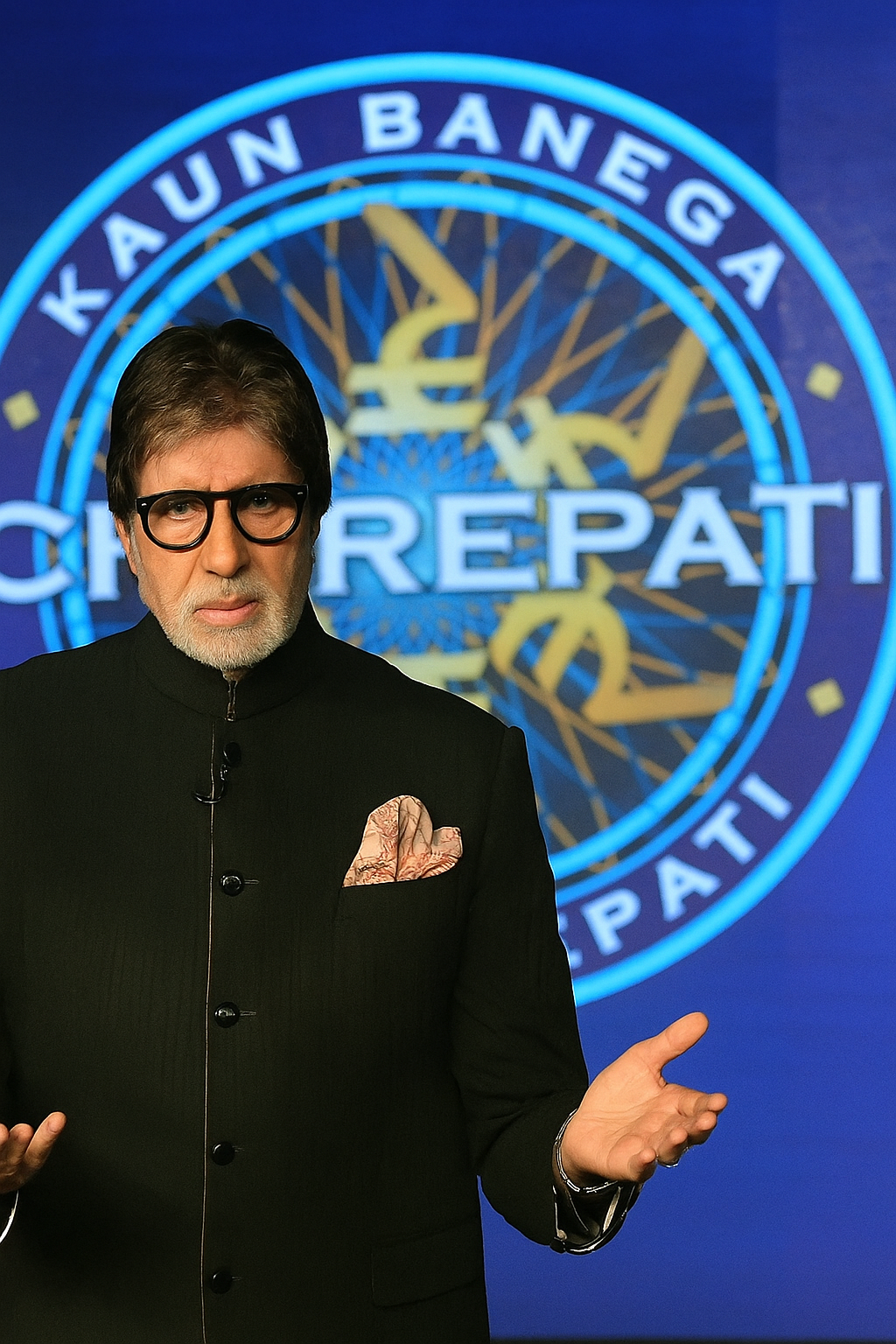A Turning Point That Changed Indian Television Forever
25 years ago, a question echoed across Indian television that would redefine its history: “Kaun Banega Crorepati?” The debut of the iconic quiz show not only brought knowledge to center stage but also gave wings to dreams across millions of Indian households. Behind the glamour and drama, though, lies an untold story of two falling giants—Amitabh Bachchan and STAR India—both on the brink of collapse, and how this show became the turning point that revived them.
The Fall of a Superstar
In April 1997, the premiere of Mrityudata at Jaipur’s Rajmandir Cinema was intended to mark Amitabh Bachchan’s grand return to cinema. After a five-year hiatus, Bachchan hoped to reclaim his stardom with this action film produced by his own company, ABCL (Amitabh Bachchan Corporation Limited). But the film flopped disastrously—so much so that Jaya Bachchan, his wife, walked out mid-show, appalled. It was more than a commercial failure; it was symbolic of Bachchan’s sinking career.
The early ’90s had already seen his magic wane. Films like Ganga Jamuna Saraswati, Toofan, Jaadugar, and Main Azaad Hoon had failed. Though Hum and Aaj Ka Arjun briefly reignited hope, subsequent movies like Ajooba, Indrajeet, and Khuda Gawah couldn’t sustain the comeback. Bachchan took a break from acting and shifted focus to ABCL, venturing into music, films, and event management. But almost every project failed. By the late ’90s, ABCL was in ruins and Bachchan himself was near bankruptcy.
STAR India’s Parallel Struggle
At the same time, STAR India was battling its own crisis. While satellite TV was booming with players like Zee and Sony already dominating, STAR was seen as an elitist English channel, disconnected from the average Indian viewer. With poor ratings and trailing ad revenues, STAR was struggling for relevance.
In a last-ditch effort, programming head Sameer Nair and CEO Peter Mukerjea decided to bring the global hit Who Wants to Be a Millionaire to India. For its Hindi avatar, Kaun Banega Crorepati, they had just one man in mind—Amitabh Bachchan.
The Reluctant Host
Convincing the larger-than-life Bachchan to move to the small screen was not easy. Initially hesitant, he believed he was an actor, not a TV host. His family, too, opposed the idea, fearing it would dilute his image. But Sameer Nair was persistent. He brought a VHS tape of the original show to Amitabh’s bungalow, urging him to just give it a watch.
Still unsure, Bachchan agreed to visit London with the STAR team to observe the show firsthand. At Elstree Studios, he watched host Chris Tarrant in action—the lights, the tension, the grandeur—and realized that television could be as dramatic as cinema. After some reflection, he turned to Nair and asked, “Can you really make it just like this?” When the team confidently replied yes, Bachchan said, “Okay, I’ll sign—but only if it’s exactly like this.”
Birth of an Iconic Show
Thus began the journey. After months of meetings, planning, and scripting, Amitabh Bachchan signed his first television contract. In March 2000, the first promo of KBC was shot in London’s Shepherd’s Bush Studios. Directed by Siddhartha Basu, the lines of that promo were penned by Bachchan himself: “Main yahaan, aap wahaan. Beech mein pandrah sawaal. Ban sakte hain aap crorepati.”
The show’s Indian set, constructed in Mumbai’s Film City, was the most expensive ever built for Indian television at the time. Rehearsals began, and the question arose—how would Amitabh speak, connect, and engage? Several writers auditioned to script his lines, including noted journalist R.D. Tailang, who eventually found the perfect tone. Soon, iconic phrases like “Computerji,” “Lock kiya jaaye,” and “Deviyon aur sajjanon” became part of everyday lingo.
A Dream Realized
In June 2000, phone lines opened for participants. In just a few days, over 1.2 million calls poured in. From these, ten lucky contestants were selected. On July 3, 2000, Kaun Banega Crorepati premiered—and nothing was ever the same again.
The show didn’t just change television ratings or programming strategies. It resurrected Amitabh Bachchan’s career and gave Indian TV a new voice. It proved that in the right moment, with the right question, destinies can be rewritten.
Amitabh Bachchan and KBC weren’t just creating a show—they were giving India a reason to dream again.








